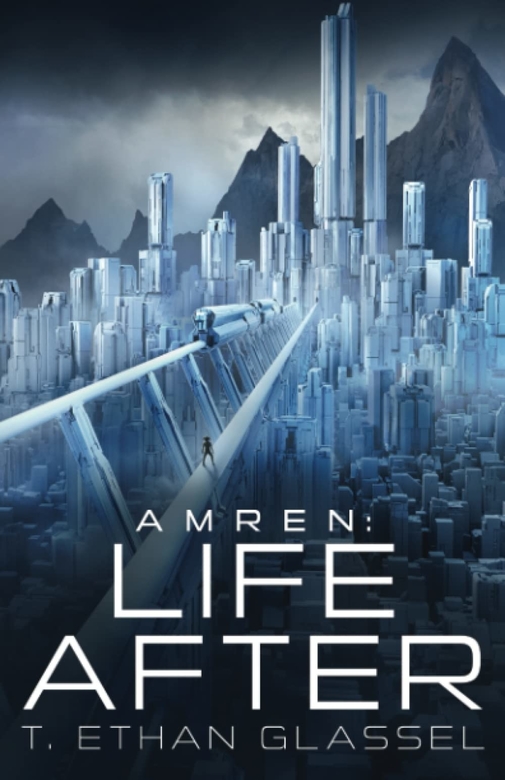
Author T. Ethan Glassel spins a visionary tale of humanity’s potential future in Amren: Life After, a philosophical thriller delving into deep questions of mortality, purpose, freedom, and justice.
Gabriel Gamont is a respected academic who has written extensively on divrils – the previously dominant species on a planet where humanity has expanded. When his own divril servant and research subject, Amren, repeatedly comes back from the dead, the Master realizes just how little he truly knows.
From the very first chapter, it is clear that this novel will be a meditation and exploration of death – both its finality and flexibility – but the big questions hardly stop there. This story is a thoughtful reflection on labor, control, class, and self-determination. Although Amren is a divril and an unquestioning servant to his Master, he displays undeniable parallels to a futuristic robot that is being programmed, or perhaps learning through its own mistakes.
Given the 21st century’s inevitable collision of infotech and biotech, subjects like machine learning and the related ethics of artificial intelligence are timely, and handled here exceptionally well. On a more psychosocial level, the interplay of two different and vastly unequal races brings up controversial ideas of subservience, consciousness, colonialism, and free will. Amren has the innocence of a young child, but the sponge-like mind of an analytic prodigy, resulting in countless moments of self-reflection and philosophical musing: “Is he just another commodity like these vegetables? Is he nothing more than a convenience? A useful tool that cooks and cleans?”
The city-state of Ancuell is also an original and allegorical setting – a sprawling circular city with massive walls enclosing seventeen democratic districts where every citizen’s vote is equal. However, much like the idealized democracies of the real world, there is far more complexity and darkness lurking beneath the surface. When it is discovered that these divrils may hold the key to immortality, their value and susceptibility to exploitation only grows, a science fiction parable that is recognizable and relevant. What no one imagines, however, is that the true potential of this enslaved and widely disrespected species has yet to be discovered.
In terms of technical details, the prose could use a thorough proofread and final polish, as there are many examples of unnatural syntax that can make the prose unclear. At times, the narrative voice feels omniscient, while in other passages it feels specific to Amren’s narrow perspective; this variation is unusual, but it does allow readers to better see this world through a divril’s eyes. The dialogue between characters, particularly Gabriel and Amren, often reads like a study in classical rhetoric, driven by well-articulated points and counterpoints, which could come off as dry or stilted, yet the conversations remain revelatory and thought-provoking.
Overall, Glassel has crafted a dystopian world that feels all too relatable, and cleverly forces readers to interrogate their own beliefs at every step along the way.
Book Links
STAR RATING
Design
Content
Editing
Get an Editorial Review | Get Amazon Sales & Reviews | Get Edited | Get Beta Readers | Enter the SPR Book Awards | Other Marketing Services























Leave A Comment